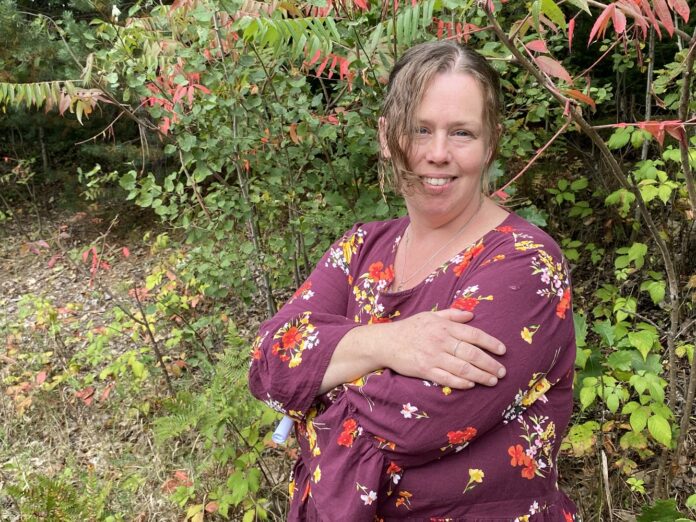Algonquin Highlands council is considering a zoning bylaw change that could pave the way for people to legally camp on private residential property within the township.
Coun. Sabrina Richards said she was shocked to learn recently that residents are not permitted to camp on their property at any time during the year. Municipal planner Sean O’Callaghan confirmed Nov. 21 that people can only camp on established campgrounds, Crown land, or on their property temporarily while building or renovating a home – with a permit required.
“You cannot camp on developed or vacant residential property. Enforcing that is, admittedly, an issue. If it’s occurring over a weekend, then it’s not likely to be enforced. If it’s an ongoing activity… that’s where [we’d intervene],” O’Callaghan said.
Mayor Liz Danielsen said she was “gobsmacked” by the revelation.
“The idea that your kids can’t pitch a tent in their own backyard, that’s nuts,” the mayor said.
O’Callaghan noted most municipalities prohibit camping on residential property. In his report to council, he stated camping is a temporary activity that is best directed to areas where the use is ordinarily expected and can be adequately serviced.
Not intended to target kids looking to spend a night underneath the stars, O’Callaghan noted the bylaw is designed to prevent people from establishing tents and trailers as permanent living spaces. He also expressed concern over some campers not having access to washroom facilities.
The planner said he was most worried about people camping on vacant land.
“On the subject of housing, we’re trying to encourage activity, but I’m picturing a vacant lot where someone buys it with the intent of camping on it a couple weeks per year. That becomes a lot that’s never going to have a house on it, at least in the near term. It’s essentially a lot you’re taking out of the bank of available developable lots in the township,” O’Callaghan said. “It’s not promoting development in the community.”
Deputy mayor Jennifer Dailloux and coun. Lisa Barry both took issue with the rules.
“I think of how young families might save to buy a little piece of vacant land, but they’ll have to save another 50 years before they can build on it. In the meantime, they want to enjoy that space, pitch a tent, take their kids and remind them what it feels like to be in nature and develop that relationship with the environment,” Dailloux said, noting she doesn’t see a problem with that.
Barry added, “I think if you [want to camp] on a piece of property you’re paying taxes on annually you should be able to. A lot of families can’t afford to go on vacations or rent Airbnbs. Our motto is ‘this is where nature begins’. I would like to see some support for how people who have property can enjoy it before having to wait until there’s a residence on it.”
O’Callaghan said North Frontenac, French River, and Lake of Bays all have bylaws that allow camping on certain developed properties, limiting people to 14 or 21 days outdoors. The planner said he’d like to see a cap put on the number of consecutive days people can camp.
CAO Angie Bird suggested council differentiate between camping in a tent and in a trailer, noting trailers have washroom facilities to ensure the proper disposal of waste. She also recommended against allowing people to camp on waterfront properties.
“There are no washroom facilities on the shoreline,” Bird said, indicating human waste could end up in the water.
Danielsen suggested implementing a permit system for people who want to camp on vacant property. She also said she’d have a hard time displacing anyone living in a trailer, whether it contravenes the bylaw or not.
“We know we have a serious housing shortage – if you see a trailer that’s not supposed to be on a property, you know someone is living there. Often, they’ve got nowhere else to go. I struggle with that. I’m not sure how we deal with that,” the mayor said.
Council directed O’Callaghan to bring back bylaw revisions that would allow people to legally camp on private property. Once ideas have been brought forward, the public will be consulted on next steps, Danielsen said.





